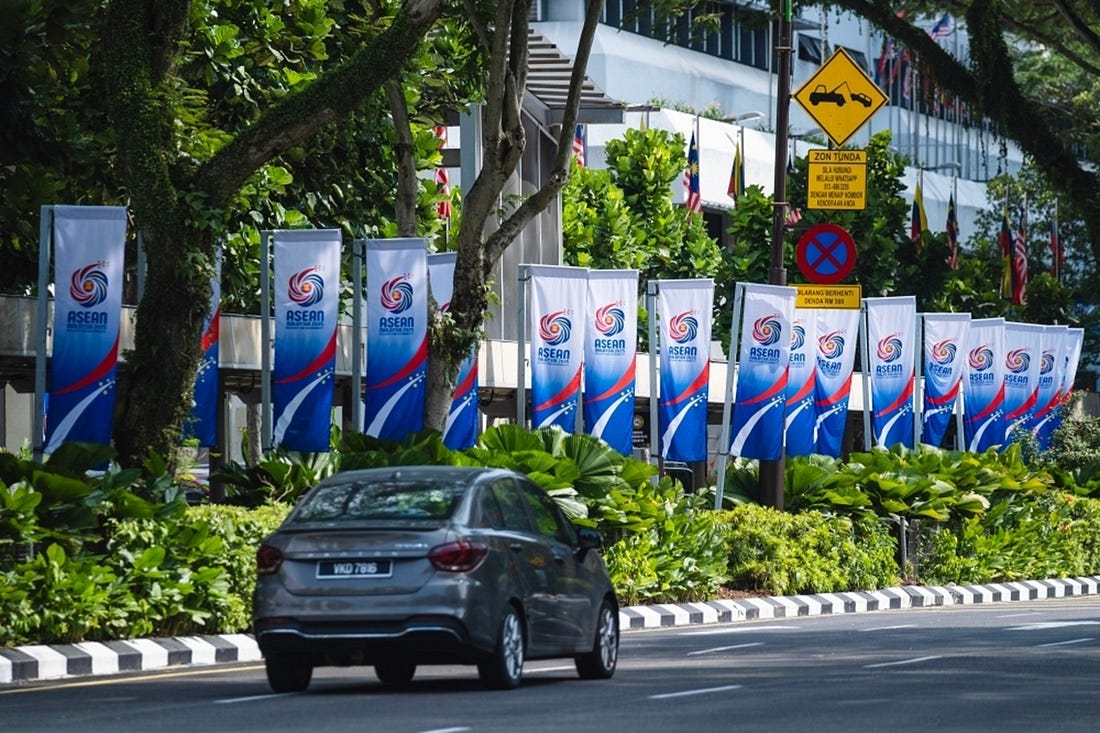A Frustrated Asean Meets in Kuala LumpurMember nations must patch disagreements to remain relevant on a shifting geopolitical chessboardBy: B A HamzahMalaysia is hosting the six-day 47th Asean summit in Kuala Lumpur, a city of 9 million that has dolled itself up for the affair, with major throughfares closed including those to the city’s two airports, causing massive traffic jams and irate motorists. Schools are closed with students going back to Covid-19 era remote learning. The 130-year-old golf course I frequent daily is smack in the city center where the summit is being held. Hundreds of members of the country’s leading political party are also in town to hold crucial elections for top party positions, adding to the chaos. The conclave is occurring amid shifting geopolitical disarray engendered by global forces including two major wars and an American campaign to reorder the world’s economic system to the US’s benefit. Arguably its most important task is to reverse the irrelevance into which it has been sliding, pushed by two seemingly insoluble issues, the conflict in Myanmar and dominance of the South China Sea. It shows little sign of confronting either. Once lauded as a model for regional cooperation, the 10-member group risks becoming irrelevant if it cannot adapt and keep step. The region’s future depends on its unity, leadership and adaptability. Malaysia must help chart a path forward—not by clinging to old habits, but by boldly redefining Asean’s role in a multipolar era. It faces a binary challenge: weathering the geopolitical storms and steadying the ship in choppy internal waters by minimizing intra-Asean differences and reducing divisiveness… This is among the stories/excerpts we choose to make widely available.If you wish to get the full Asia Sentinel experience and access more exclusive content, please do subscribe to us for US$10/month or US$100/year. |


